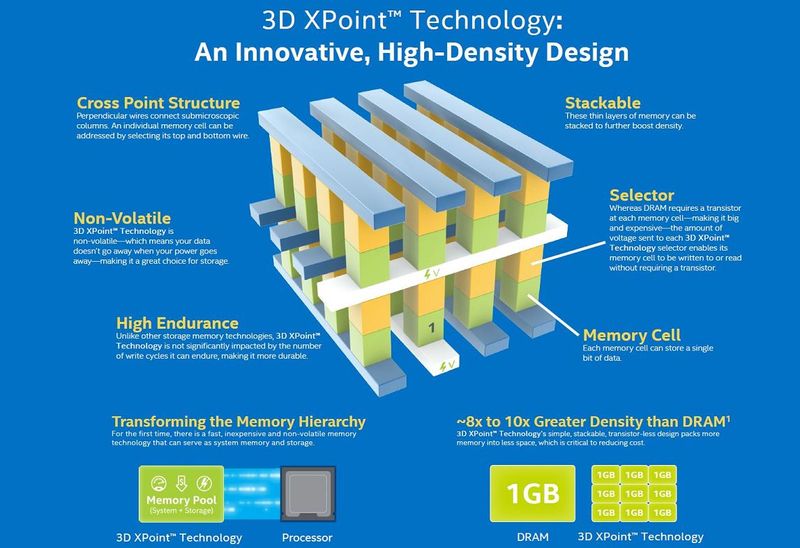Apple MacBooks will support Intel Optane SSDs by 2017
Back in August 2015, Intel announced its new 3D XPoint memory technology, now better known as “Optane”, in reference to the super-fast line of SSDs planned to be unveiled next year.

Intel has developed a unique design for its new non-volatile storage components which uses a three-dimensional configuration, similar to the High-Bandwidth Memory developed by AMD and Hynix, capable of stacking multiple memory modules and transfer/store data at much higher speeds than regular DRAM.
According to sources cited by MacWorld, details have emerged that suggest Intel has a workable timeline to release its line of super-fast SSDs, to be used in Apple MacBooks by next year.
If there is one thing that Mac users rarely complain about, is the speed of their MacBooks. All new MacBooks make use of NVME technology, which boosts data transfer speeds considerably. With Intel’s new Optane SSDs, the increase in performance will be comparatively superior, next to what NVME is currently capable.
There is also word of Optane DIMMs being planned for release sometimes in the next year, which will be compatible with current DDR3/4 DRAM BUS found in most PCs and existing Macs.
What makes Intel Optane technology so efficient is that the memory is organized in a three-dimensional mesh, as mentioned earlier. This design allows data to be written in smaller increments on multiple modules, at staggering speed, compared to the linear method used by conventional memory.
Before this technology reaches consumers, Intel is likely to be working on making it available to the enterprise, as early as this year, considering the cost-effectiveness, this design would bring to data centers, and application processing facilities, as well as virtual server environments.
By the time Optane memory and SSDs reach Mac users, it will likely be one more nail in the coffin for the spinning drive, as the introduction of Intel’s new SSDs could accelerate the popularity and demand of existing SSDs, and drive the price further down for both internal and external options.